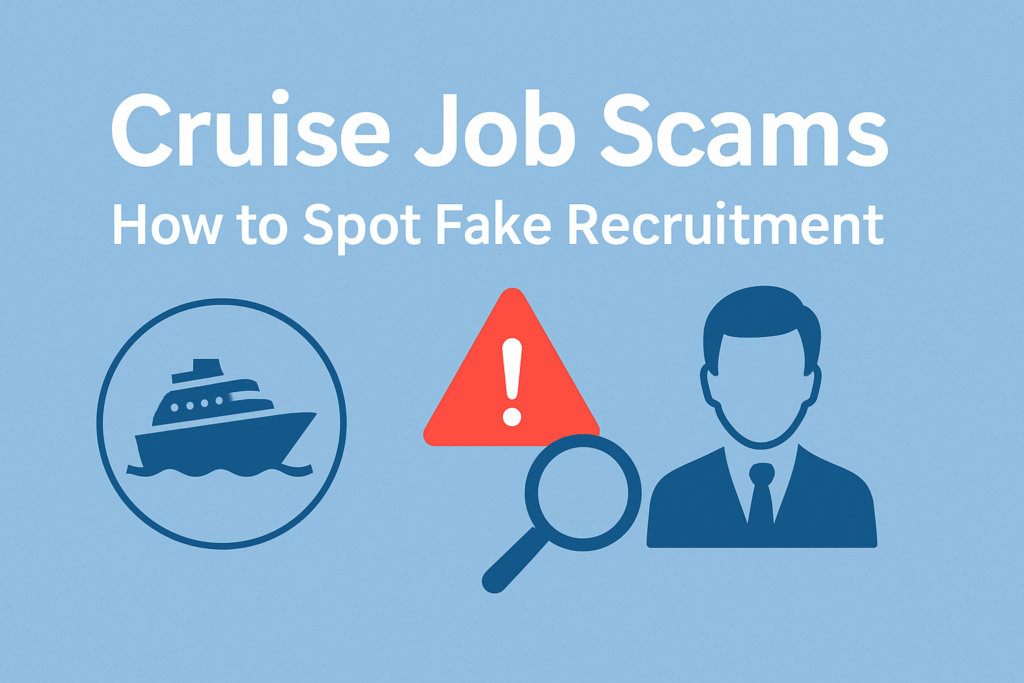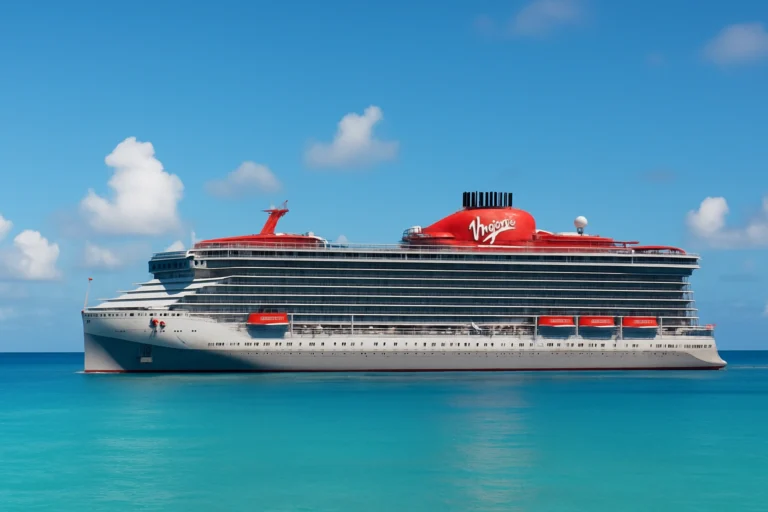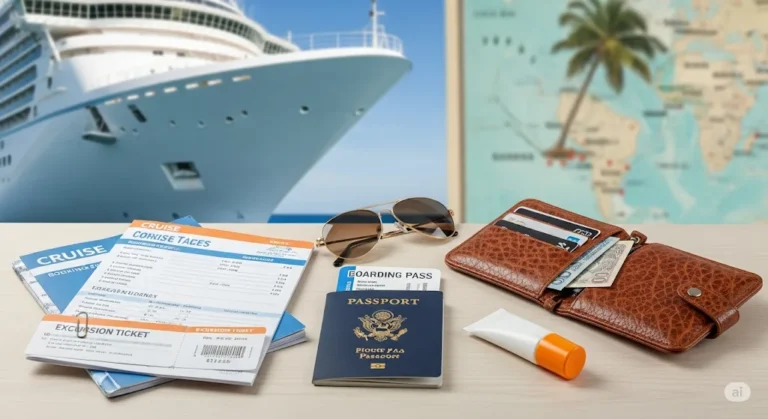Cruise Job Scams: How to Spot Fake Recruitment
🛳️ Cruise Job Scams: How to Spot Fake Recruitment
📌 Cruise ship jobs offer a unique opportunity for travel, adventure, and career growth, making them highly sought after by individuals worldwide. However, the popularity and appeal of these roles also make them a prime target for fraudsters. Many eager job seekers unfortunately fall victim to sophisticated and convincing fraudulent recruitment schemes. This comprehensive guide is designed to empower you with the knowledge to identify common cruise job scams, understand their tactics, and protect yourself from financial loss and emotional distress.
🚩 Warning Signs of a Cruise Job Scam: Know the Red Flags
Scammers often employ similar tactics to trick unsuspecting applicants. Learning to recognize these red flags is your first and best line of defense.
💸 Asking for Money Upfront
This is the most significant and consistent warning sign. **Legitimate employers, including major cruise lines, will never ask you to pay money at any point in the recruitment process.** If you are asked to send money for any of the following, it is unequivocally a scam:
- ✔ **Processing or Application Fees:** No genuine company charges you to apply or process your application.
- ✔ **Medical Exams or Visas:** While you will need to undergo a medical exam and obtain a visa for a cruise job, legitimate companies will provide instructions on how to arrange these yourself (and you pay the official body), or they will arrange and cover the initial costs which are then potentially reimbursed or deducted from your first paycheck. They will *never* ask you to pay them directly for these services.
- ✔ **Uniforms or Travel Arrangements:** Similarly, uniforms are either provided by the cruise line or specified for purchase from approved vendors *after* you’ve been legitimately hired. Travel to the embarkation port is typically arranged by the cruise line, often covered by them, or the costs are clearly outlined as your responsibility to pay directly to a travel agent, not to the “recruiter.”
- ✔ **Background Checks or Training Materials:** Any request for payment for these is a scam.
📧 Suspicious Email Addresses and Unprofessional Communication
Scammers often use email addresses that mimic legitimate companies but are slightly off. Look for:
- ✔ **Free Email Domains:** An offer from “[email protected]” or “[email protected]” is a definite scam. Real companies use their official domain (e.g., @princesscruises.com, @rccl.com).
- ✔ **Fake or Misspelled Domains:** Be wary of subtle misspellings or variations like “[email protected]” if the official Costa Cruises website is costacruises.com. Always cross-reference the sender’s domain with the official company website.
- ✔ **Poor Grammar and Spelling:** Legitimate correspondence from major international companies will almost always be professionally written, free of significant grammatical errors or typos.
- ✔ **Generic Greetings:** Emails that start with “Dear Applicant” rather than your name are a red flag.
🎁 Too-Good-To-Be-True Offers
Scammers lure victims with promises that are unrealistic and overly enticing. Be cautious of:
- ✔ **Unusually High Salaries:** Offers of exorbitant pay for entry-level positions or roles that typically command moderate wages.
- ✔ **Guaranteed Employment Without an Interview:** No legitimate company, especially a major cruise line, will offer you a job without a formal interview process, which often includes multiple rounds.
- ✔ **Immediate Hiring or Pressure to Act Quickly:** Scammers try to rush you into making decisions before you have time to research or think critically.
💬 Recruitment via Social Media or Unsolicited Messages
While cruise lines do have a social media presence, legitimate job offers are rarely, if ever, extended exclusively through unsolicited messages on platforms like Facebook Messenger, WhatsApp, LinkedIn, or other chat apps.
- ✔ If someone messages you out of the blue with a job offer, be highly suspicious.
- ✔ Always verify their identity and check the official company website’s careers section. Legitimate recruiters will direct you to apply through official channels.
🛡️ How to Protect Yourself: Smart Steps for Job Seekers
Empower yourself by taking proactive steps to verify opportunities and safeguard your personal and financial information.
- ✔ **Apply Only Through Official Channels:** The safest way to apply for cruise jobs is directly through the “Careers” or “Employment” section of the official cruise line’s website. Major cruise lines (e.g., Carnival, Royal Caribbean, Norwegian, MSC, Princess, Holland America) have dedicated recruitment portals.
- ✔ **Never Send Money:** Reiterate this rule: if anyone asks you for money for a job offer, it’s a scam. Discontinue communication immediately.
- ✔ **Verify Contact Details and Recruiter Credentials:** If you receive an offer, independently look up the cruise line’s official contact information. Call them directly to verify the recruiter’s identity and the validity of the job offer. Do not use contact information provided by the suspicious email/message.
- ✔ **Research Extensively:** Use search engines to look for reviews or warnings associated with the recruiter’s name, email address, or phone number. Search terms like “[Cruise Line Name] + scam” or “[Recruitment Company Name] + fraud” can yield useful results.
- ✔ **Be Wary of Personal Information Requests:** Be cautious if they ask for sensitive personal information (like bank account details) early in the process, before a legitimate offer is extended.
- ✔ **Consult Reputable Agencies (if applicable):** If you use a recruitment agency, ensure it’s a well-known, reputable agency with a proven track record of placing candidates legitimately. Check their credentials and reviews.
📅 When Are Scams Most Common? Peak Hiring Seasons
While scams can occur year-round, fraudsters often intensify their efforts during periods of high recruitment demand, capitalizing on the increased number of job seekers. Knowing these periods can help you be extra vigilant:
- ✔ **Spring (Typically February – May):** Cruise lines are actively hiring to staff ships for the busy summer cruising season in popular regions like Alaska, Europe, and the Caribbean.
- ✔ **Fall (Typically August – October):** Recruitment picks up again as cruise lines prepare for the winter cruising season, especially for routes in the southern hemisphere (e.g., Australia, South America) or new deployments.
During these times, job boards and social media can be flooded with both legitimate and fraudulent postings, so heightened scrutiny is advised.
📌 Final Thoughts: Your Dream Job, Not a Nightmare
**🚫 Don’t let excitement for a cruise ship job cloud your judgment.** While the prospect of working on a cruise ship is incredibly appealing, a healthy dose of skepticism and diligent research are your best allies. Always remember that legitimate opportunities will never require upfront payment. Research, verify every detail, and stay informed about common scam tactics.
A genuine cruise job can be a life-changing experience, opening doors to new cultures, skills, and friendships. By arming yourself with knowledge and caution, you can successfully navigate the job market and ensure your dream of working at sea becomes a reality, not a costly scam.
📂 Explore More in These Categories
❓ FAQ – Frequently Asked Questions About Cruise Job Scams
🔹 How do I know if a recruitment agency is legitimate?
Check if the agency is listed on the official cruise line’s website as an authorized recruitment partner. Look for independent reviews, verify their physical address, and ensure they don’t charge upfront fees for placement. Legitimate agencies are typically paid by the cruise line, not the applicant.
🔹 Should I trust offers from LinkedIn?
While legitimate recruiters use LinkedIn, be cautious of unsolicited offers from unknown profiles. Always verify the company and the recruiter’s identity independently through official channels before sharing any personal information or engaging further. Legitimate recruiters will direct you to apply through the company’s official careers site.
🔹 What if I’ve already sent money to a scammer?
If you suspect you’ve been scammed, contact your bank or credit card company immediately to report the fraudulent transaction. File a report with your local law enforcement agency and report the scam to relevant authorities, such as the FTC (Federal Trade Commission) in the U.S. or equivalent consumer protection agencies in your country. The sooner you act, the higher the chance of recovery.
🔹 Are cruise lines aware of these scams?
Yes, cruise lines are very aware of these scams and often have dedicated sections on their official careers websites warning applicants about fraudulent recruitment practices. They actively work with law enforcement to combat these scams.
🔥 Have you ever encountered a suspicious cruise job offer?
🗣️ Your experience can help others! Share your story in the comments below: What red flags did you notice? How did you protect yourself? Let’s build a community of informed job seekers!









